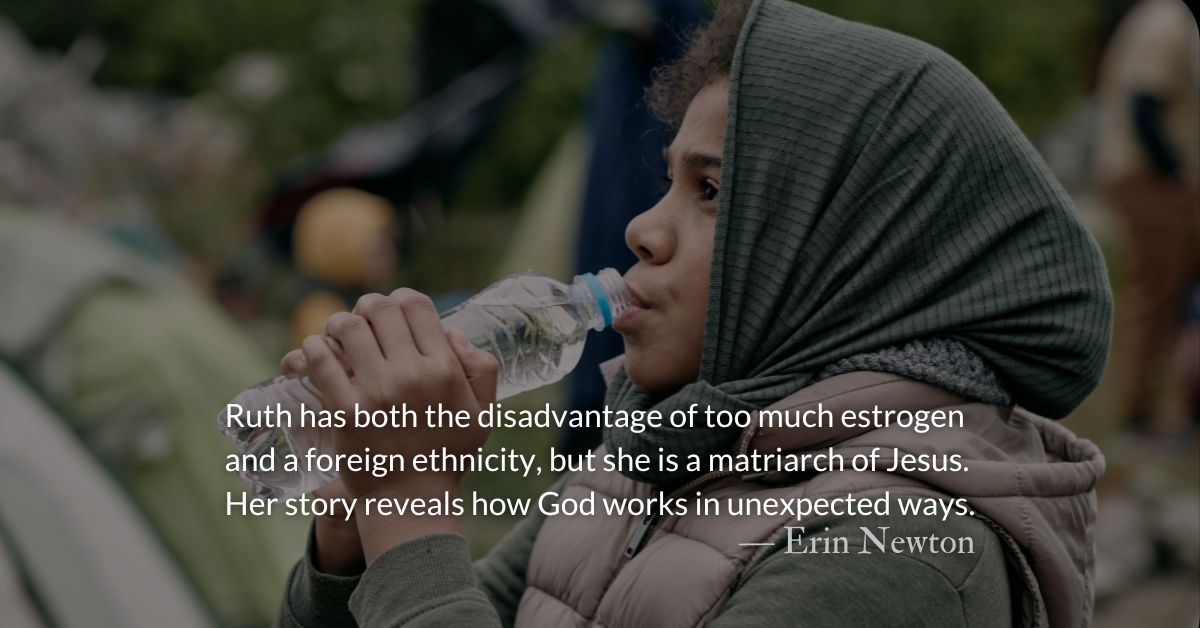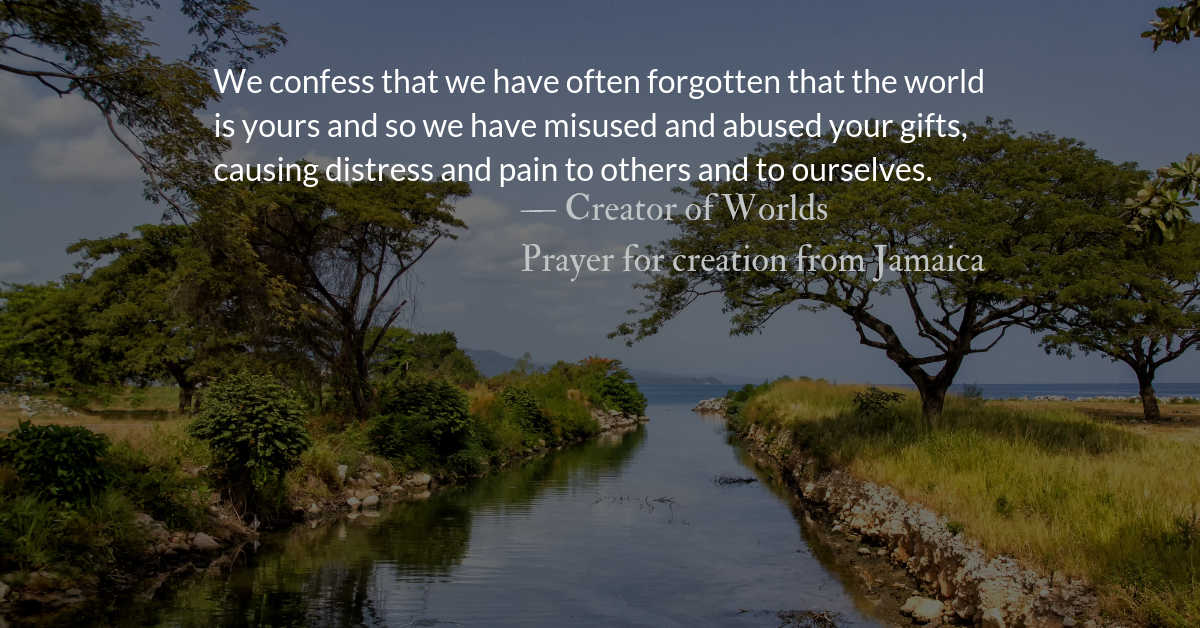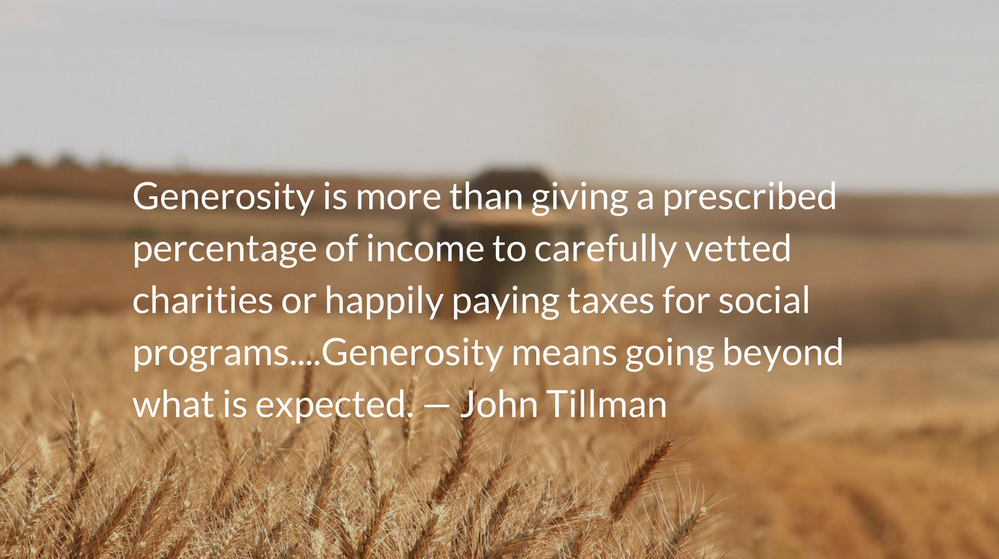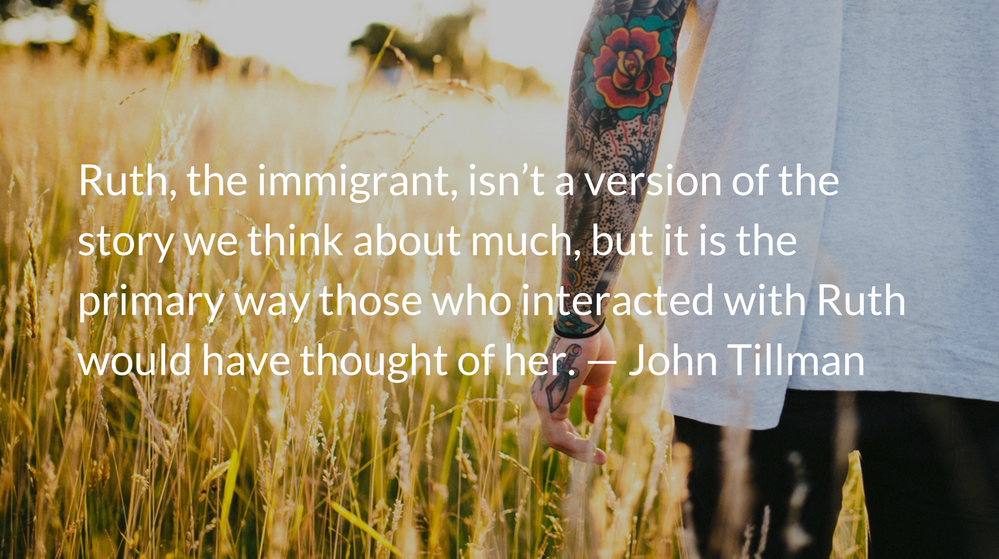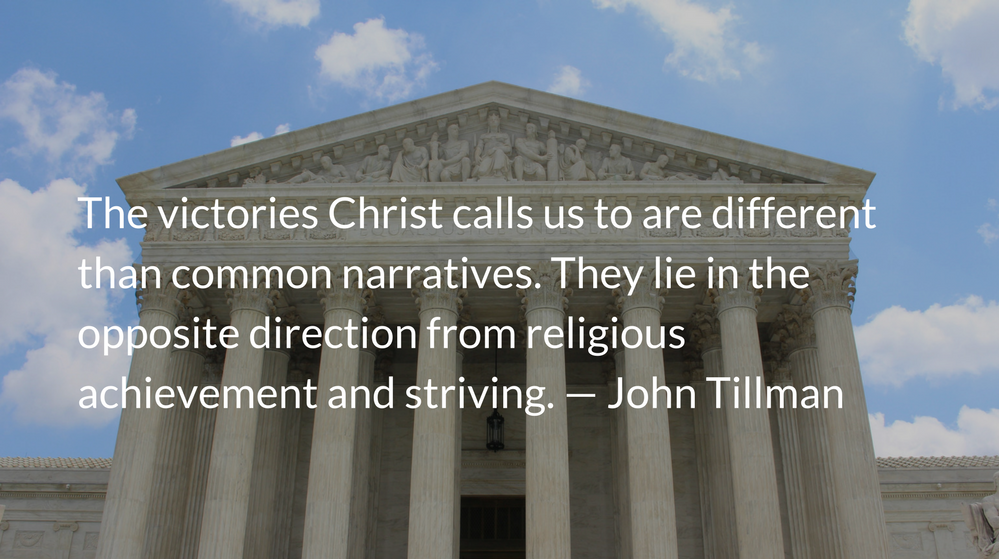Scripture Focus: Matthew 1.1, 5b
1 This is the genealogy of Jesus the Messiah the son of David, the son of Abraham:
5 …Boaz the father of Obed, whose mother was Ruth
Ruth 4.15
15 He will renew your life and sustain you in your old age. For your daughter-in-law, who loves you and who is better to you than seven sons, has given him birth.”
Reflection: Ruth’s Story — Love of Advent
By Erin Newton
These are the matriarchs of Jesus: Tamar, Rahab, Ruth, Bathsheba, and Mary. This is Ruth’s story.
Ruth rarely needs an introduction. Her story is told in nearly every women’s bible study.
She was not part of a scandalous story like Tamar or Rahab. But like Tamar and Rahab, she was also not part of Abraham’s family. She was not an Israelite but a Moabite. And her story opens with sorrow.
Three deaths cover the first five verses of the book. The book begins with emptiness. Famine and empty bellies. Death and empty households. Immigration and the parting of sisters.
Without a husband or heirs, Ruth joined her mother-in-law to return to Israel and said goodbye to her Moabite sister-in-law. The rumor was that God had been gracious to Israel. The barren land was filling with food.
Despite being a foreigner and a woman—a double disadvantage—she worked to provide for herself and Naomi. You get the sense that Ruth was humble yet intelligent. She understood her place in the Israelite culture but also how to make the most of each situation.
Israelite stories of marriage follow a pattern. Robert Alter points out the typical nature of such scenes: a man journeys from a foreign land, comes upon a well, meets a woman, she draws water for him, a marriage proposal occurs, and she rushes home to tell her family. We see this scene in stories about Isaac and Rebekah, Jacob and Rachel, and Moses and Zipporah.
The expected story of betrothal is met with unexpected turns. It is Ruth who stands in the spotlight of the story. In this story it is the woman who travels to a distant land. It is Boaz who ensures Ruth has something to drink. In a story that ought to focus on the patriarch, it is Ruth who exemplifies such qualities.
Boaz redeemed her, but Ruth’s character is the focus of the story. She, like Rahab, heard the stories of God in her foreign land. Like Rahab, she decided by faith for “your God” to become “my God.”
Ruth has both the disadvantage of too much estrogen and a foreign ethnicity, but she is a matriarch of Jesus. Her story reveals how God works in unexpected ways.
Ruth, someone from the outside, is chosen and honored as one of five women named in Jesus’s family.
In the love of Jesus belong the outsiders and the disadvantaged.
Divine Hours Prayer: The Refrain for the Morning Lessons
Blessed are they which do hunger and thirst after righteousness: for they shall be filled. — Matthew 5.6
– From The Divine Hours: Prayers for Summertime by Phyllis Tickle.
Today’s Readings
2 Chronicles 14-15 (Listen 5:49)
Psalms 119-73-96 (Listen 15:14)
Read more about Ruth, the Immigrant
Ruth shows us how God’s grace helps us immigrate from our own selfish kingdoms to the kingdom of God.
Read more about Supporting Our Work
Our work is funded by donors like you. Please consider joining them to support ad-free content that brings biblical devotionals to inboxes across the world.

